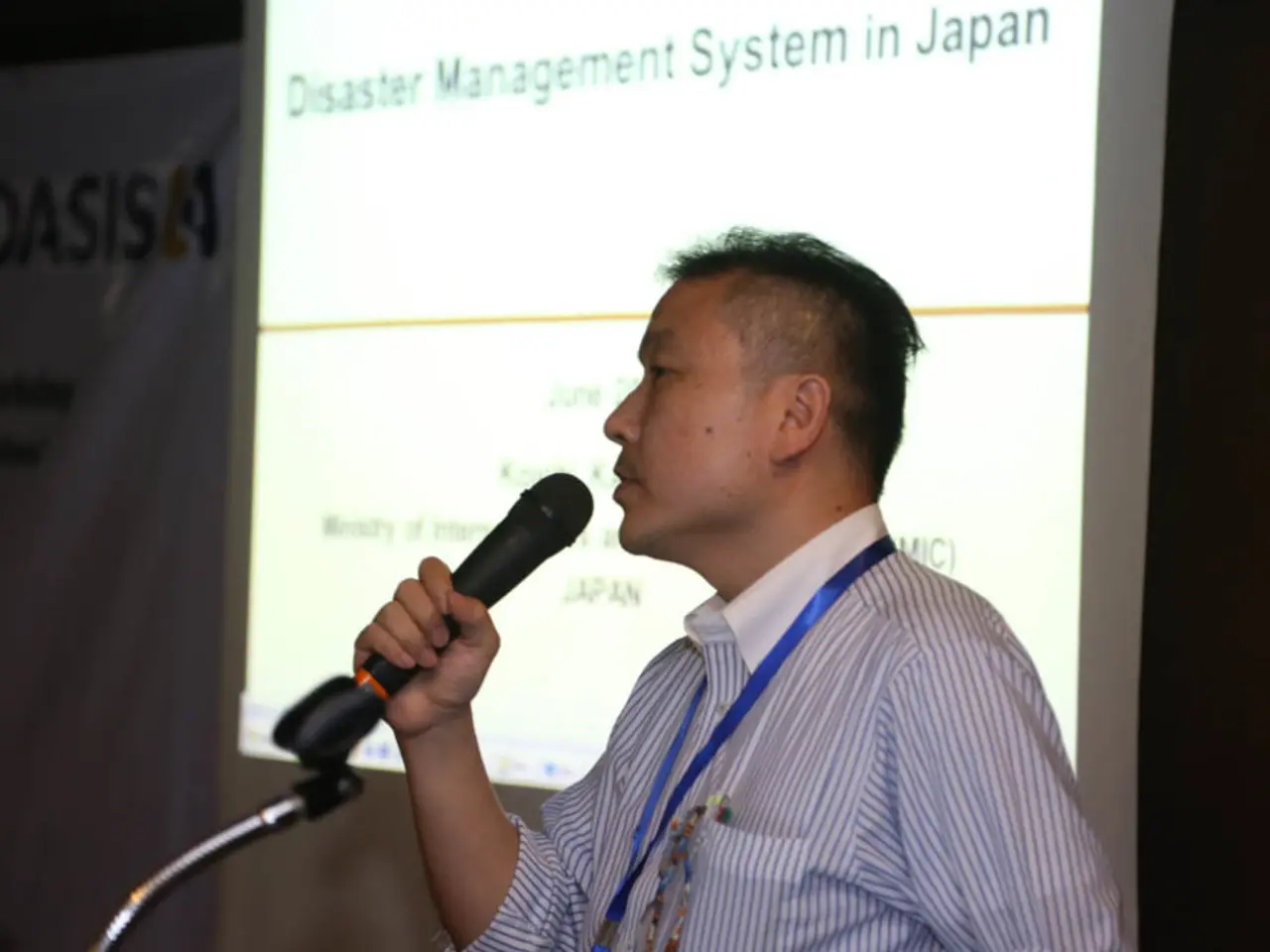Industrial fatalities are under the direct purview of Lee's subordinates as per his orders.
In response to a tragic incident at a construction site in Uijeongbu, President Lee Jae Myung has ordered the government to take immediate action to enhance worker safety and reduce workplace fatalities.
The incident, which resulted in the death of a worker, served as a catalyst for President Lee to strengthen his calls for stronger safety measures and tougher punishment for violators. The President has instructed the Ministry of Labor to present the industrial accident prevention framework, follow-up measures, and actions taken so far at the Cabinet meeting scheduled for Tuesday.
The Cabinet meeting will also see the presentation of a faster reporting mechanism, aimed at enhancing the existing information-sharing system. This move is a step towards ensuring that President Lee is promptly informed of industrial deaths, as he has ordered.
The government is implementing a comprehensive, tougher regulatory and enforcement framework to curb workplace fatalities. This includes the imposition of heavy fines for companies involved in accidents killing three or more workers. Proposed penalties could reach up to 10 billion won or 3% of a company’s annual revenue, whichever is greater.
Amendments to the Occupational Safety and Health Act will also allow authorities to suspend business licenses, restrict public bidding eligibility, cancel company registrations for repeated fatalities, and impose penalty surcharges beyond criminal liability under the Serious Accidents Punishment Act.
Oversight is planned to expand beyond construction—currently accounting for nearly half of workplace deaths—to other high-risk sectors. Increased disclosure requirements by prime contractors about safety and fatality records in subcontracting chains are also part of the new measures.
The labor minister will regain authority to issue emergency work stoppage orders in cases not currently deemed "serious accidents," aiming for quicker intervention to prevent further incidents. A large-scale raid involving about 70 officials inspecting POSCO E&C signaled stricter enforcement, as the company had multiple fatal accidents recently but avoided penalties under previous rules.
The administration seeks to reduce industrial fatality rates to the OECD average within five years and to strengthen the social safety net for workers, including expanded compensation coverage and protections, especially in small workplaces.
However, the government faces criticism from industry groups warning that punitive measures alone may harm business viability and housing supply. They suggest a need to address root causes alongside penalties.
Despite the challenges, President Lee's strong determination to drastically reduce workplace fatalities is reflected in the measures presented by the Ministry of Labor. The man who died while removing safety nets at a new apartment complex construction site will not be forgotten, as his death serves as a reminder of the urgency to improve workplace safety in South Korea.
- The President's impetus for stronger safety measures in the workplace-wellness industry, following a tragic incident, extends beyond construction to include oversight of other high-risk sectors, aiming to reduce health-and-wellness hazards in the industry.
- In an effort to drastically reduce workplace fatalities and strengthen the social safety net, the government plans to implement tougher regulations, like imposing hefty fines on companies that fail to adhere to safety standards in the finance sector, where such failures can lead to industrial deaths.




